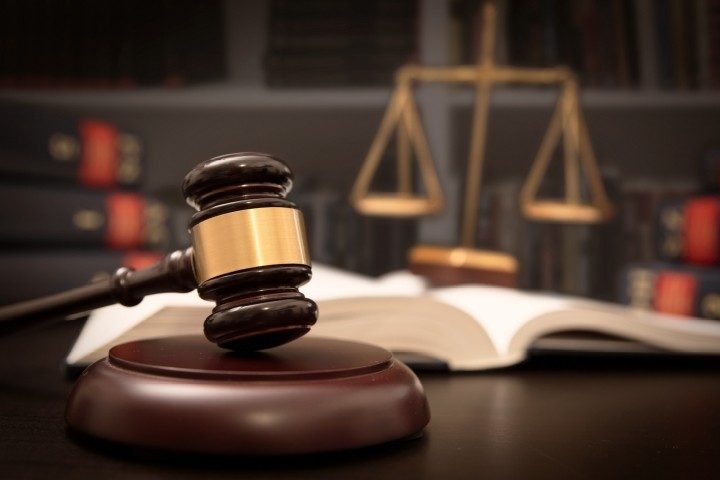
With Roe v. Wade potentially poised to be overturned, defenders of life see a golden opportunity to eliminate abortion at the state level. However, these plans may be complicated in places such as Iowa, where a past state Supreme Court ruling could create another hurdle to be dealt with.
Iowa currently has large GOP legislative majorities and a Republican governor who is strongly against abortion. But in 2018, the Iowa Supreme Court made a ruling that at the time was taken as establishing access to abortion in the state.
“I don’t know if the people of Iowa know that things aren’t going to change immediately if Roe v. Wade is overturned,” said State Representative Sandy Salmon, a Republican and farm manager from northeast Iowa who has sought to restrict abortion.
Iowa isn’t alone among Republicans states in which the state supreme court has ruled in favor of abortion previously. But in the Hawkeye State, things could change quickly as Republicans call on the new high court with new, conservative justices to reverse the decision made just four years ago. A decision is expected within a matter of weeks.
“There are states where this is to some extent unknown and an issue that state courts will likely have to confront,” said Helene Krasnof, vice president of public policy, litigation, and law for Planned Parenthood Federation of America. “But this is an issue that’s present in Iowa in this very moment.”
The Iowa Supreme Court decision currently under consideration shot down a 2017 law signed by then-governor Terry Branstad that required a woman to wait 72 hours before receiving an abortion. Ultimately, the high court at the time ruled 5-2 that Iowa’s constitution guarantees access to abortion.
“Autonomy and dominion over one’s body go to the very heart of what it means to be free,” wrote then-Chief Justice Mark Cady, who died in 2019. “Implicit in the concept of ordered liberty is the ability to decide whether to continue or terminate a pregnancy.”
Since that time, Republican Governor Kim Reynolds, Branstad’s successor, has signed additional abortion restrictions, including a hearbeat bill and requiring a 24-hour waiting period. A state district court struck down both pieces of legislation last year.
Since Cady gave his opinion, Reynolds has appointed four of the court’s seven members. She has been helped along by the GOP-controlled legislature, giving her more control over the process of selecting the panel that recommends potential nominees to the court.
Sally Frank, professor at Drake University Law School, believes that if the court were to overturn a decision made only four years ago, it “would give an even more political look to a decision here than the U.S. Supreme Court.”
Advocates for the unborn, however, argue that rulings in states such as Iowa are examples of laws wrongfully being established through judicial ruling than by the legislature.
“This case presents the opportunity for the Iowa Supreme Court to return the issue back to the people to decide through their elected representatives in the Legislature,” said Mallory Carroll, a spokeswoman for the anti-abortion Susan B. Anthony List.
Reynolds has said she is “proud of the legislation she signed in 2018,” including the ban on abortions once cardiac activity has been detected. Although the legislation she signed includes exceptions for rape, incest, and cases in which the life of the mother is in jeopardy, Reynolds recently declined to speak out in favor of any exceptions.
“I’m not going to set any parameters,” she told reporters last week. “We have a ruling before the Iowa Supreme Court and we’re going to wait and see what they do, and that actually will affect what our next steps are moving forward.”
In Alaska, Florida, Kansas, Montana, and Minnesota, state Supreme Courts have also previously ruled that their respective constitutions enshrine the right to abortion.
Republicans presently hold the governorships and legislative majorities in Florida and Montana. In both those states, abortion restrictions are currently before their supreme courts.
AP notes:
Majority Republicans in the Kansas Legislature are seeking to invalidate a 2019 state Supreme Court decision that declared access to abortion a “fundamental right” with a referendum on the August primary ballot to amend the state constitution.
Iowa Republicans also are pursuing a constitutional amendment that specifies the state constitution does not recognize, grant, or secure a right to abortion. The amendment could not stop the Legislature from enacting a statutory right to abortion, but would present an obstacle to any court weighing what the state would be required to enforce.
The measure needs a second approval in the Legislature and will likely come up next year, Salmon, the GOP state lawmaker, said. If approved it would go before voters, probably in 2024.
One thing is clear: No matter what the ultimate decision on Roe, the abortion fight is far from over.





